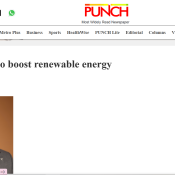
New Business Models in the energy sector
The energy sector is undergoing significant transformation, driven by technological advancements, environmental concerns, and changing consumer preferences. As a result, new business models are emerging that are reshaping how energy is produced, distributed, and consumed. Here are some new business models in the energy sector:
Decentralized Energy Generation and Microgrids: With the growth of renewable energy sources like solar and wind, decentralized energy generation is becoming more popular. Microgrids, which are localized energy systems that can operate independently or in conjunction with the main grid, allow communities, campuses, or industrial sites to generate and manage their own energy. These models increase energy independence, resilience, and enable better integration of renewables.
Energy as a Service (EaaS): This model offers customers energy solutions without requiring them to invest in and maintain energy infrastructure. EaaS providers handle everything from energy generation to distribution and offer it as a service, often with a focus on sustainability and efficiency. This could involve solar leasing, energy-efficient lighting as a service, or even complete energy management for buildings.
Demand Response and Virtual Power Plants: Demand response involves adjusting energy usage in response to supply-demand fluctuations or price signals. Virtual power plants integrate distributed energy resources like solar panels, batteries, and electric vehicles into a unified system. They can provide grid support services and sell excess energy back to the grid when needed.
Peer-to-Peer (P2P) Energy Trading: P2P energy trading platforms allow individuals and businesses to buy and sell energy directly to each other. This model utilizes blockchain technology for transparent and secure transactions, enabling prosumers (those who both produce and consume energy) to sell their surplus energy to neighbors.


Energy Storage Solutions: The growth of energy storage technologies, such as batteries, enables new business models. These include providing grid services like frequency regulation, peak shaving, and backup power, as well as offering storage-as-a-service to balance intermittent renewable energy sources.
Energy Efficiency and Smart Building Solutions: Companies are offering energy efficiency solutions and smart building technologies that optimize energy consumption. These solutions can include IoT-based sensors, automation systems, and data analytics to reduce energy waste and costs
Electrification and Mobility Services: As electric vehicles (EVs) become more common, there’s a growing market for EV charging infrastructure and related services. Businesses are exploring EV charging stations, battery swapping services, and integrating EVs into energy management systems.
Subscription-Based Energy Models: Similar to how you might subscribe to a streaming service, some companies are offering subscription-based energy models where customers pay a fixed monthly fee for a certain amount of energy, along with energy-efficient appliances and devices.
Carbon Offset and Renewable Energy Certificates (RECs) Trading: Companies and individuals looking to reduce their carbon footprint can purchase carbon offsets or RECs to support renewable energy projects. Businesses are creating platforms to facilitate these transactions and provide transparent tracking of environmental impacts.
Carbon Offset and Renewable Energy Certificates (RECs) Trading: Companies and individuals looking to reduce their carbon footprint can purchase carbon offsets or RECs to support renewable energy projects. Businesses are creating platforms to facilitate these transactions and provide transparent tracking of environmental impacts.
Hydrogen Economy: The emergence of hydrogen as a clean energy carrier has led to the development of business models around hydrogen production, storage, transportation, and utilization in sectors such as transportation, industry, and power generation.
These are just a few examples of the innovative business models shaping the energy sector. The sector is dynamic, and new models will likely continue to emerge as technology and market trends evolve.




